My Kind of Heaven
My last races of the season were in Europe: La Route de France Feminine and Albstadt...
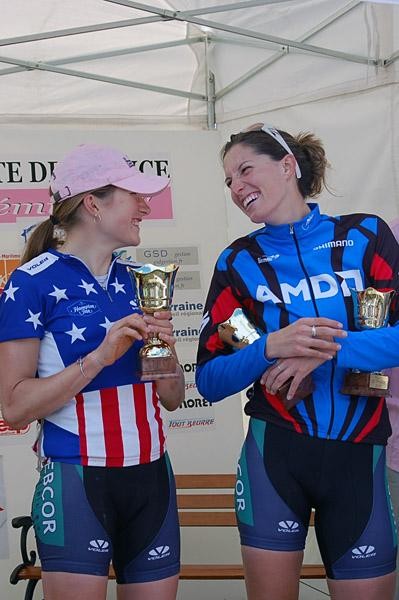
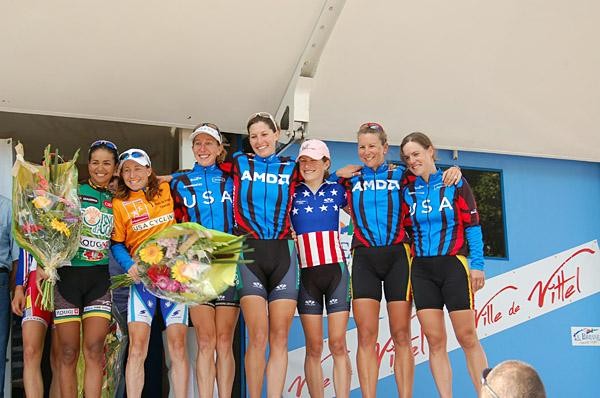
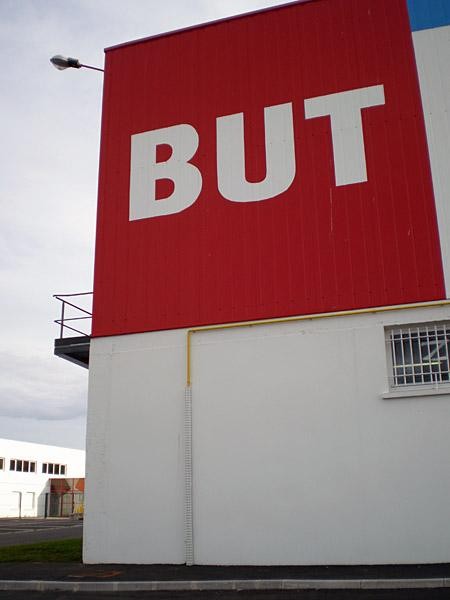
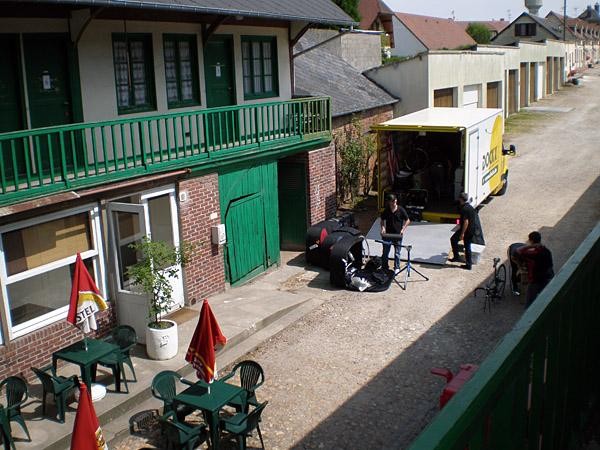
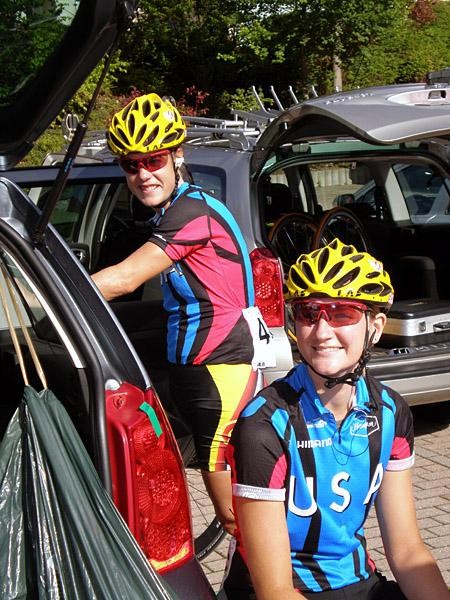
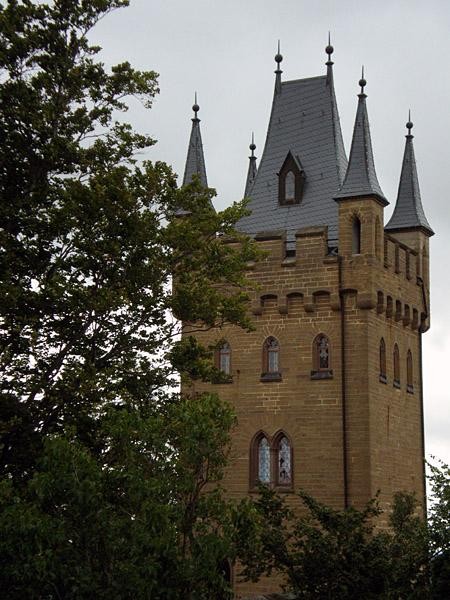
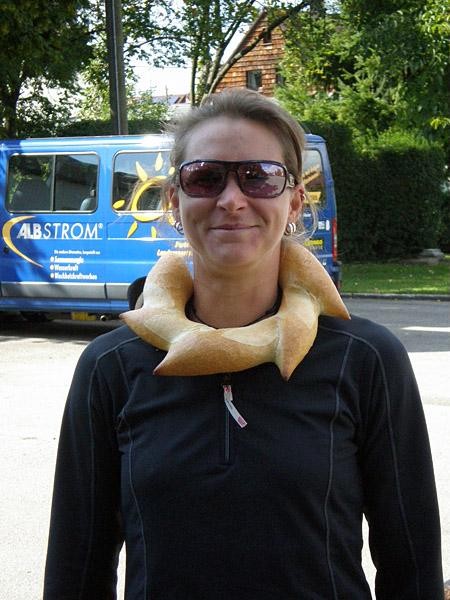
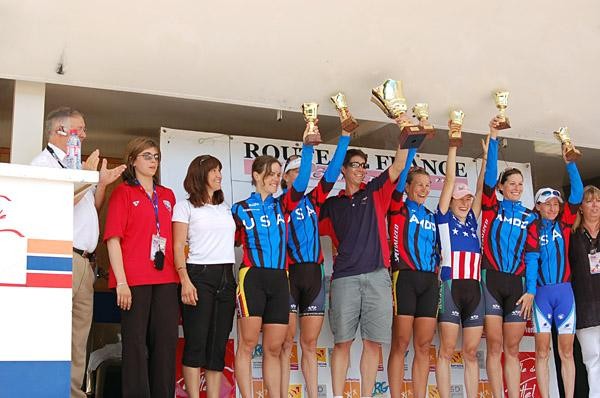
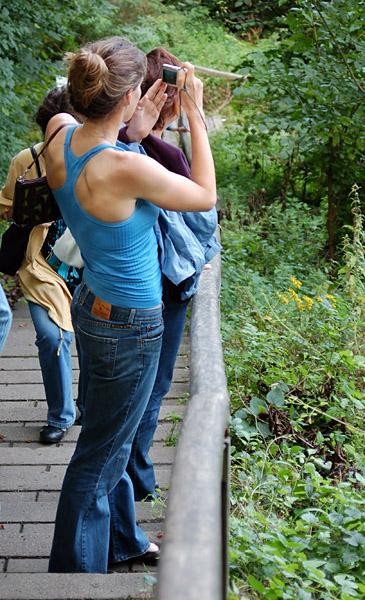



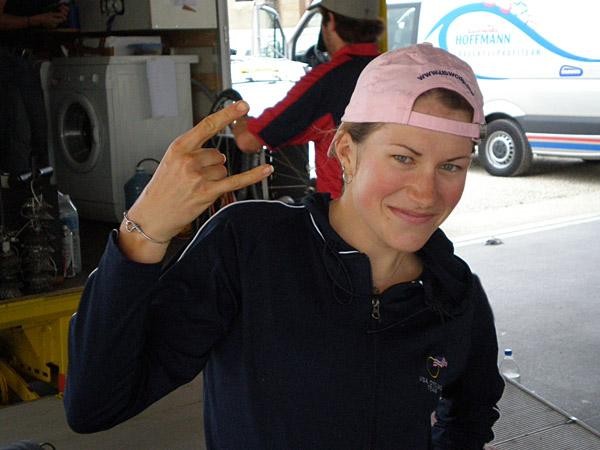
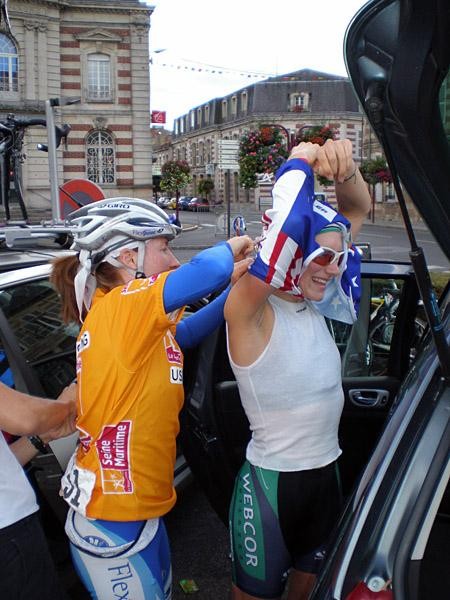


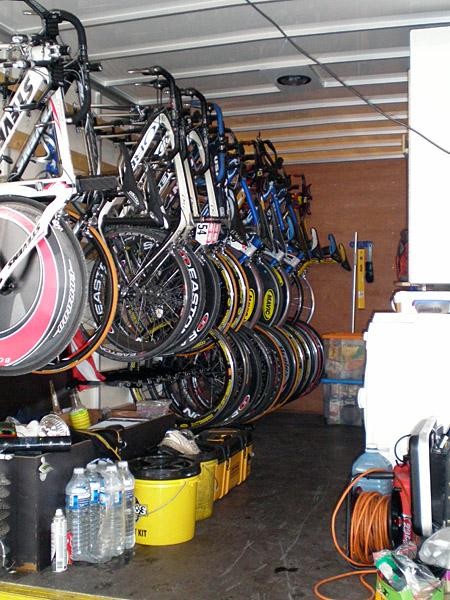
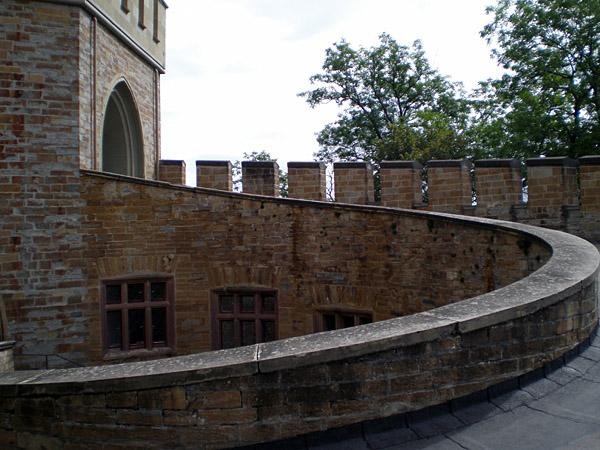
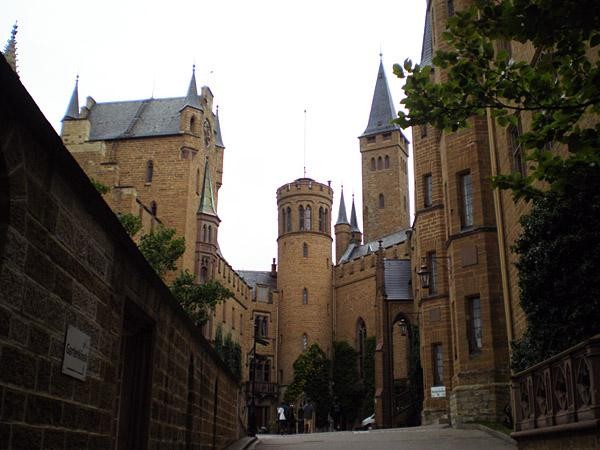

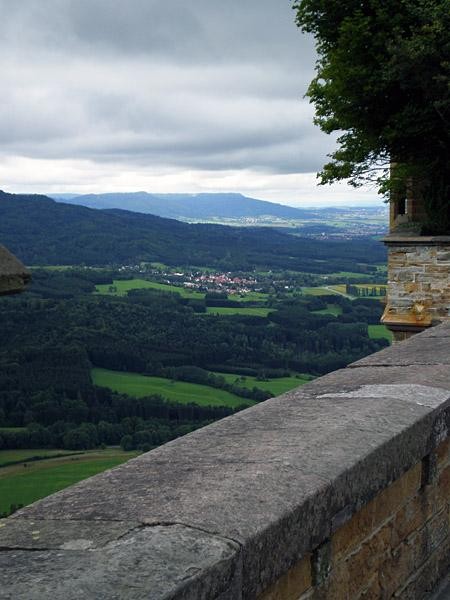

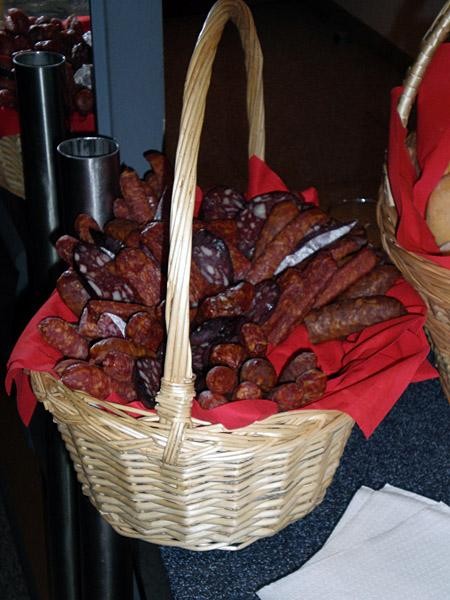

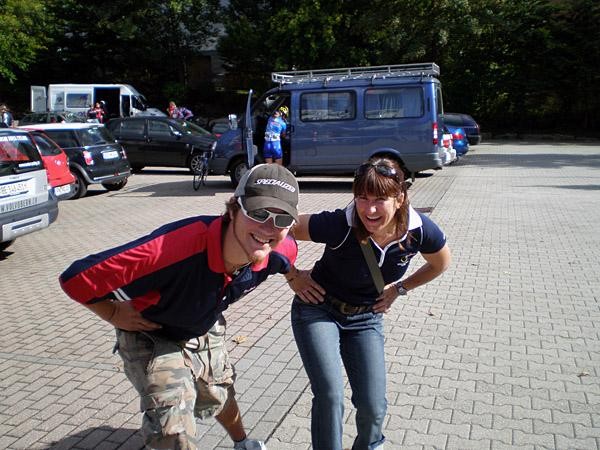
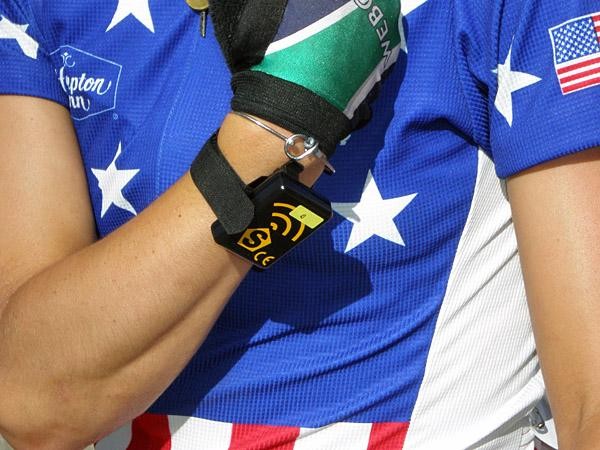
My last races of the season were in Europe: La Route de France Feminine and Albstadt Frauenetapperennen in Germany. After the chaos of packing, bike-bag checking, security lines and a zealous quest for Peet's coffee, I settled into my seat on the plane, relaxed by the thought that I didn't have to do anything for the next sixteen hours. I closed my eyes, took a deep breath and let the full reality of where I was going and what I was doing wash through me. I took out my notebook to record the moment: "On the plane, flying out of Washington Dulles for Paris. I am nearly bursting with happiness and excitement – I have traveled all over the place with my bike, and now I get to race in Europe! All of this from dedication and joy in doing what I love, under my own power and motivation – it's beautiful."
La Route de France Feminine
At La Route I had the honor of racing with a phenomenal group: Amber Neben, Kori Seehafer, Mara Abbott, Katheryn Curi and Meredith Miller. Keeping us fine tuned and focused for the event were Laura Downey (Soigneur), Chris Franges (Mechanic) and Frank Overton (Directeur Sportif).
Every step of this adventure imbued a sense of exhilaration. I distinctly remember the first time I pulled the National Team jersey over my head. We rode out of our tiny host village in Normandy sporting red white and blue through sunny fields of haystacks and wild flowers. "We're in FRANCE!" I thought over and over, with increasing thrill. I soaked it all in – road signs in French, charming old barns with red brick exposed beneath tired plaster, and cobblestones everywhere. My excitement overshadowed the jetlag and the tiny catch in my throat, which I naively chalked up to a little heartburn.
The race kicked off with an explosive performance by Team USA. Kori Seehafer tore through those crazy cobbled streets faster than anyone, winning the opening prologue, and Amber Neben clocked a blazing time for third place. Two on the podium and the yellow jersey – not a bad start!
The next day, the tickle in my throat revealed its true identity with devastating effect: coughing, congestion, swollen sinuses and full body exhaustion. After the stage, I paid a visit to the race doctor, who recoiled in horror after inspecting my throat: strep. He immediately prescribed antibiotics and sent me packing with firm instructions to take it easy. Ha! I wasn't about to leave our team short-handed so easily. After discussing the situation with our D.S., I decided to hang in as long as I could, in hopes that I might feel better after a few days on antibiotics to be of help to the team in the later stages of the race.
Given our commanding position after the prologue, our job was to maintain control of the peloton. Stage races place enormous energy demands on racers. Putting over 850 kilometers of race intensity in your legs in eight days is no joke, so the key is to focus on the decisive parts of the race (in a stage race, these are usually the longer time trials and big climbing days) and to save as much energy as possible at all other times. At least, that is what you do if you want to win. If you are a domestique, as I was, your job is to do the work necessary to maintain control of the race and allow your team leader to conserve energy for the decisive time trials or climbing stages.
I did my best to help where possible, for the most part willing myself beyond the waning strength in my body just to stay with the peloton. And you know what? I loved every minute of it – the yelling and chatter in languages I didn't understand, the small triumphs of helping where I could and finishing each stage, the roundabouts and road furniture, the aggression in the peloton and the crowds in every town. I loved discovering a new level of suffering, and with it, a new depth to my will. At the end of each stage, when I could barely walk or breathe, I would think to myself: this is heaven!
By the end of the week, as the illness began to subside and strength began to return to my wasted legs, 'giving everything' began to mean more than hanging in by the skin of my teeth to race another day. I was finally able to seriously contribute, pulling through our echelon at the front, setting tempo between QOM sprints, and jumping after attacks. These triumphs might seem small, but it was such a good feeling to be making a difference again, to be racing and adding to the team effort when Katheryn, Meredith, Kori and Mara had borne the brunt of the work during the early stages.
At La Route, I experienced real transfers for the fist time. Sure we have occasional 'transfers' in the states, but these usually refer to driving 45 minutes to the start of a particularly far-away stage. After some stages of La Route, we would drive three hours to a new hotel. We quite literally raced across northern France, rarely staying in one place for more than a night, and if we did, it was a real treat to set up a semi-permanent camp and actually take things out of the travel bags. For the most part, however, we never bothered to unpack.
Over the course of the stage race, I noticed a remarkable change in the peloton. At first, I had to dodge elbows and hip-checks to maintain position. Upon noting my jersey, it seemed that other racers would promptly put me in the wind, or worse, the gutter, so I quickly learned to hold my ground. As the race went on, however, and we continued to successfully protect the yellow jersey (first for Kori and later for Amber Neben), other racers would actually make way for us in the peloton! Such was the respect garnered by the yellow jersey and our team's efforts. Having never experienced this before, I had previously regarded this aspect of cycling etiquette as urban legend, but not so!
We won the Yellow Jersey and overall Team Classification and two stages with the total commitment of every team member (and by 'team' I mean everyone – racers, soigneur, mechanic and D.S.). We celebrated by going out for pizza and enjoying a few hours of food and laughter, made even merrier by good French wine and the added company of Mara's older brother, Nate, who had rented a bike to follow part of our race. Very cool.
Albstadt Etapperennen
Our squad then met up with Lauren Franges in Albstadt, Germany, for the Albstadt Frauenetapperennen (Albstadt Women's Stage Race). After a beautiful drive from France into Germany (including rest stops with coin-operated WC's and self-cleaning toilets – wacky!), we were greeted in Albstadt at the Landessportschule by race organizers, who promptly helped us to get situated. From the moment we arrived, it was clear that the hospitality here would surpass all expectations.
That night, we joined race organizers and media folks for a very tasty Italian dinner, and when I opened the menu, I had no idea what a single word meant. It was a strange feeling to go from being able to read everything and speak easily with anyone in France, to absolute linguistic disconnection. Thankfully, almost all of the folks we met spoke excellent English, and I quickly learned the essentials: 'danke' means 'thank you,' 'bitte' means 'please,' and 'excuse me' is 'Entschuldigung.' Even if you don't speak any other words of a language, locals appreciate the effort, and these simple phrases can go a long way.
Before the race, we were treated by the race organizers to a field trip at Burg Hohenzollern, a medieval castle once home to the family Hohenzollern, one of the ruling families of Prussia. The castle was rebuilt twice during its long history, most recently in the mid-1800's in the English Neo-Gothic style, and presides over expansive green valleys from its perch atop Mount Hohenzollern – spectacular! We walked through the castle and grounds, taking photos around every corner. Having lived in the U.S. my whole life, I haven't seen many medieval castles other than on film!
My cold had subsided, but my body had not yet recovered from the combined stress of illness and an eight day stage race. A race is a race, though, and we got this one going with a 4k prologue in downtown Albstadt. Despite the rain, the crowds were awesome, and I felt really motivated. The funny thing with time trials is that when you finish, you really have no idea how it went. Invariably, I feel like I could collapse upon crossing the finish line, and that either means it went really well, or really badly: it could go either way. This time, it went well, especially considering how I was feeling. Unfortunately, this would be the last I'd see of anything resembling good legs.
The circuit race the following day took place under sunny skies and before throngs of spectators. Team USA had a great showing with aggressive performances by Lauren Franges and Kori Seehafer. Lauren got away from the field for a solo lap, but with the field chasing and no one bridging, the group came back together. I was a little overzealous in the first half of the race and despite encouragement from my teammate Meredith Miller, managed to blow myself to pieces with several laps of the circuit to go. Thankfully, I got to jump in with a group that included my Webcor teammate, Helen Kelly, who was racing for the Australian National Team there. Our small group rotated pulls to finish within the time limit, so we could race again the next day.
The last race of the Albstadt tour is filed in my memory under the heading: Longest Crit of My Life. Technically, I suppose it was a road race, but the short, technical course (the kind I usually love) felt far more like a crit, as did the speed. A few laps in, my body was thinking: Right on! I love crits! The problem is that crits in the U.S. usually last at most an hour and a half, which is what I think my body was expecting. Not so. This race would last over three hours. Normally, I would be in heaven, but my demolished legs were in no condition to 'race' a three hour crit, let alone 'survive' one. Besides, the point of racing is to race, not just to survive.
Several times during the race, I'd think "Okay, you have no legs, so give everything you have left to get to the front and do something – anything – to help, to race. Then, if you're toast, you're toast, but at least you raced." Then I'd throw down what would feel like a suicidal effort to move up through the group. I got close a few times, but never close enough, or with enough in my legs to make an impact. Then I would see the lap counter, and I'd think: "Okay, finish one more lap. You know you have at least one lap in you." These mind games eventually got me through the whole race. It was a true exercise of will; my legs had almost nothing to do with getting me to the finish.
On the other hand, my teammate Lauren Franges had great legs and went after this race with gusto, initiating and driving a break to the finish, while Kori, Meredith and Katheryn patrolled the front of the main field. With her courageous performance, Lauren finished fourth on the stage – an awesome result.
All of my teammates in Europe – Amber Neben, Lauren Franges, Kori Seehafer, Meredith Miller, Katheryn Curi and Mara Abbott – raced with guts, honor and commitment. My experiences racing with them taught me much and inspired me even more.
Racing at this level is an honor in and of itself, but it's not enough just to be there. The whole point is to be there and to make a difference. It was bad luck getting sick on day one of my first European adventure, but sometimes, that's just how it goes. My teammate Rachel and I have often discussed the importance of knowing when to let go of those aspects of racing over which you have no control. For example, when sick or injured, it's important not to dwell on being sick or injured, but to instead focus on what you can do about it, on healing and coming back stronger.
As I look to next season, that is my plan. I won't waste time worrying over things that I cannot change. Instead, I am focusing on what I can change, and I'm doing everything in my power to come back stronger and more prepared to make a serious impact.
Epilogue
After Albstadt, we drove to the team house in Italy, and from there, I took a train north to Graz, Austria. It would be the first time in my life that I would set foot in that country, and within nine days, I would be living there. It's been an adventurous year, and there is more to come. Check back soon for stories about the off-season from my new home in Austria!
Thanks for reading,
Amber
Go Green Tip #12
The holiday season is upon us, and as you consider your prospects for unbridled consumerism this year, take a moment to reflect on how you can contribute to the economy without compromising the environment. Perhaps try doing something special for your loved ones, rather than buying something for them. Second-hand and recycled items can also provide great options. For more on green gift-giving ideas, check out these websites:
1. Grist 10 Ideas for "Stuff-Free" Gifts: www.grist.org/feature/2007/11/20/stuff-free/index.html
2. NRDC Great Green Gift-Giving Guide: www.nrdc.org/cities/living/ggift.asp
3. CA Department of Conservation Green Gift Guide: www.greengiftguide.com/
4. Environmental Defense Green Gifts for the Holidays: www.edf.org/article.cfm?contentID=5616
5. Yahoo! Green 2007 Gift Guide: green.yahoo.com/holiday2007/
6. National Geographic Green Guide: www.thegreenguide.com/doc/123/seasonsgreenings
Get The Leadout Newsletter
The latest race content, interviews, features, reviews and expert buying guides, direct to your inbox!